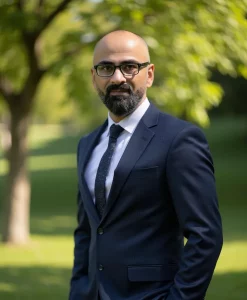When it comes to identifying high-potential talent, especially among fresh graduates and early-career professionals, personality traits can be just as crucial as qualifications. As a leadership coach and entrepreneur overseeing a growing team, I’ve consistently observed how certain traits from the Five-Factor Model stand out in shaping long-term success. While all five traits have their place, I find Openness and Conscientiousness to be the strongest predictors of growth, adaptability, and leadership potential. Here’s why I believe these traits matter the most—supported by a real-life story from my own organisation.
Why Openness and Conscientiousness Stand Out
Though it’s hard to pick one or two traits out of the five covered by the Five-Factor Model, as a leadership coach and an entrepreneur employing over 50 team members, I will always pick Openness and Conscientiousness over the others. Below, I will explain why.
In a world where organizations are relying on their personnel to step up their game – focusing on personal and professional development and being creative and innovative – openness to experience is a trait that works like insurance when I am recruiting young individuals, especially fresh or less experienced graduates. Similarly, if they are disciplined, organized, motivated, and take ownership of their personal and professional development, everything else can be taken care of by me as an employer to support them in their learning and growth.
A Story That Changed My Perspective
I recall hiring an intern a few years ago who was way too shy and would only keep to himself. He was an average performer, so it did not help that he was struggling to bond well with others and was often perceived as a cold person. At the end of his internship, I decided not to offer him a permanent position. He sent me an internal message to have a word with him, and obviously, I was happy to have a 1-2-1. During the meeting, he thanked me for the internship opportunity and explained how much it had helped him learn new skills and professional behavior. He also showed me a Professional Development Plan (PDP) that he had prepared to further his learning and development within our organization. Even though he was not being offered a permanent position, he planned to continue acting on that PDP and would always credit our organization for putting him on that track.
I was mind-blown to see such a strong commitment to personal and professional development and was quick to realize that he was not a rude person but an extremely introverted one. After a few days of reflection, I offered him a role that was primarily research-based and required very little teamwork. I also mentored him over the next few months to learn how to bond well with other members and improve his social and emotional intelligence skills. This worked wonders, and today, he is leading an entire department that employs almost 40% of our workforce.
Why Other Traits Sometimes Fall Short
In contrast, we often come across fresh graduates who exhibit traits such as extraversion, agreeableness, and even emotional sensitivity (neuroticism). However, many of them lack openness and conscientiousness—two traits that are far more critical for long-term success. Unfortunately, no amount of mentoring or coaching seems to effectively shift this mindset when these core attributes are missing.
Conclusion
In my experience, hiring individuals who demonstrate strong Openness and Conscientiousness can be a game-changer for any organisation. These traits not only foster creativity, learning, and accountability but also create a solid foundation for long-term development and leadership. While other traits may contribute to an individual’s workplace personality, they rarely compensate for a lack of these two core attributes. As leaders, recognising and nurturing Openness and Conscientiousness—especially in young professionals—can unlock remarkable potential and significantly impact an organisation’s culture and success.




